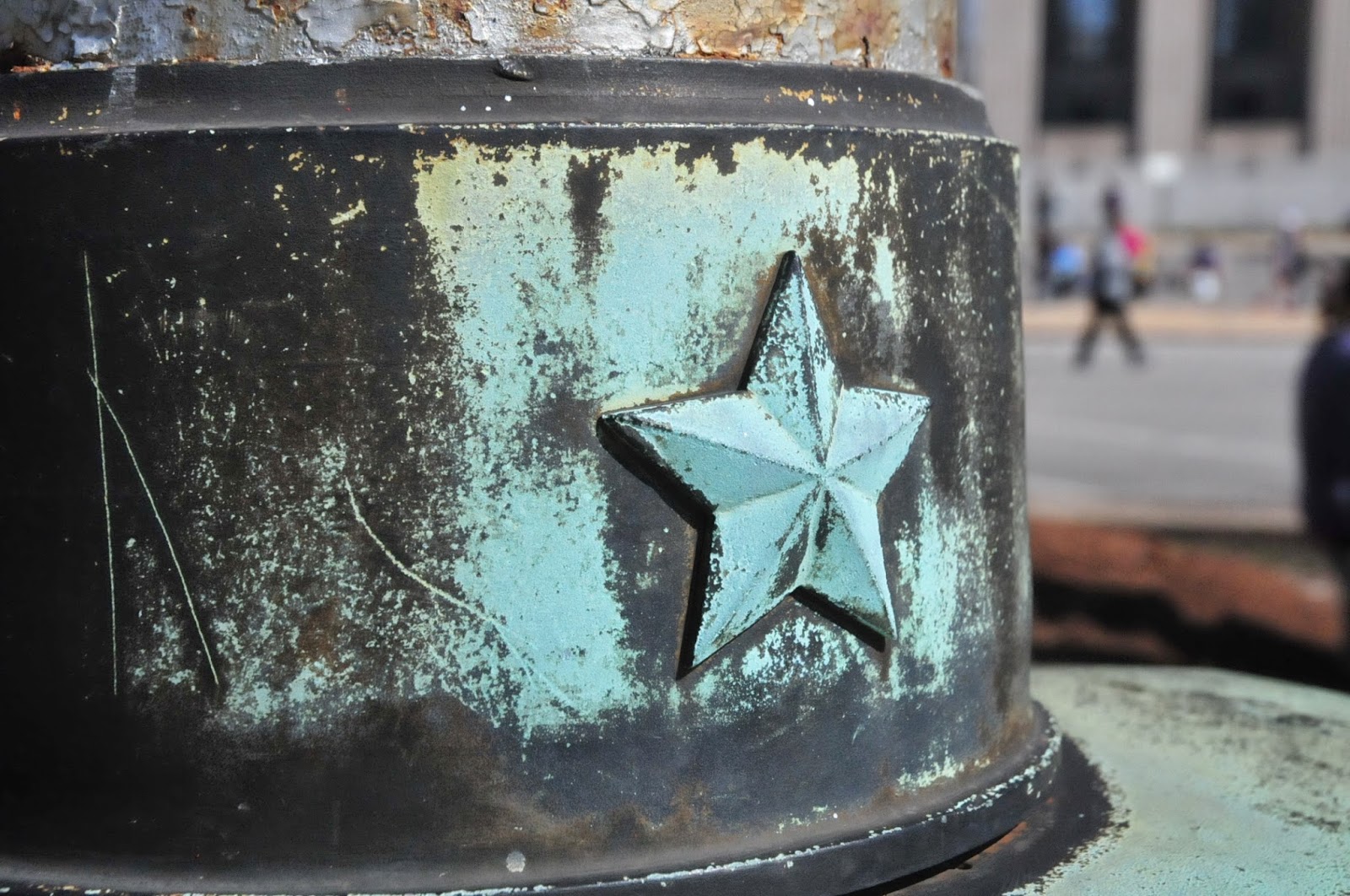The park was part of the "urban renewal" that cleared the buildings, homes and businesses for green space from 22nd street to the Mississippi River.
The park is framed by some St. Louis classics including Union Station, Peabody Opera House, Soldier's Memorial Military Museum and the St. Louis Law School.
Union Station
Peabody Opera House
Formerly Kiel Auditorium
Got it punk?
Soldier's Memorial Military Museum
Civil Courts and Scott Hall -SLU Law
The most interesting part of Memorial Plaza is toward the eastern side of the park where there is are granite and stone monuments to each of the foreign wars between WWII, Korea and Vietnam. Names of St. Louisans who served and lost their lives are on display.
There sculptor responsible for WWII Memorial Court is Hillis Arnold (1906-1988):
Hillis Arnold was a leading sculptor of religious art and an advocate of Symbolism and the Expressionist style. Born in Rural Beach, ND in 1906, Arnold lost his hearing at the age of six months due to spinal meningitis. In 1933, Arnold attended the University of Minnesota, winning the Keppel Prize for sculpture. He graduated with a degree in architecture. In 1938, he began teaching sculpture and ceramics at Monticello College (now Lewis and Clark Community College) in Godfrey, IL, where he remained for 34 years. He had exhibits throughout the U.S. and participated in many national competitions. He was renowned for his work in religious and symbolic subject matter, and contributed sculptures to many churches and civic buildings in the Midwest. His work in St. Louis includes the World War II Memorial Court of Honor; Holy Cross Lutheran School for the Deaf; the St. Louis Abbey; and Resurrection Church. He was elected a Live Fellow of the International Institute of Arts and Letters. (source)
There are some areas that are landscaped and appear to be well cared for.
There are smaller monuments donated over the years...
Late 1980's Sweet Meat
The next block, heading west from the Soldier's Memorial, there is a statue dedicated to German poet, playwright and author Friedrich Schiller (1759-1805).
The statue is an exact reproduction of the statue in Marback, Germany; Schiller's birthplace. Schiller was a noted German poet. The statue was donated by Col. Charles G. Stifel. It was originally installed in November of 1898 at St. Louis Place Park. It was moved to its current location in the 1970's. (source)You can read about St. Louis Place Park HERE.
The sculptor was Ernst Rau, architect J. Wilhelm I, contractors Hodges & McCarthy.
Toward the western section, there is really nothing more than trees and grass, and some decaying benches and other park utilities usually commandeered by homeless.
There are some late 1960's/early 1970's sculptures and children's jungle gyms.
The parks that continue west to the 22nd Street interchange are Aloe Plaza and Aloe Plaza West.



































Where you said "Toward the western section, there is really nothing more than trees and grass, and some decaying benches and other park utilities usually commandeered by homeless."
ReplyDeleteI Say CLEAN THAT UP NOW. Make it look like City Garden there or something like that. It is an eyesore and an embarrasment to the city that it looks that way. Tear down those 1970s aweful looking "sculptures". Clean that place up.